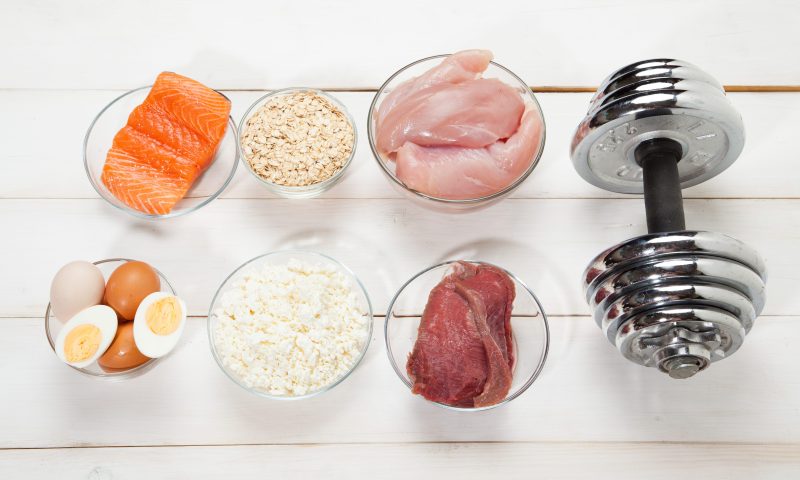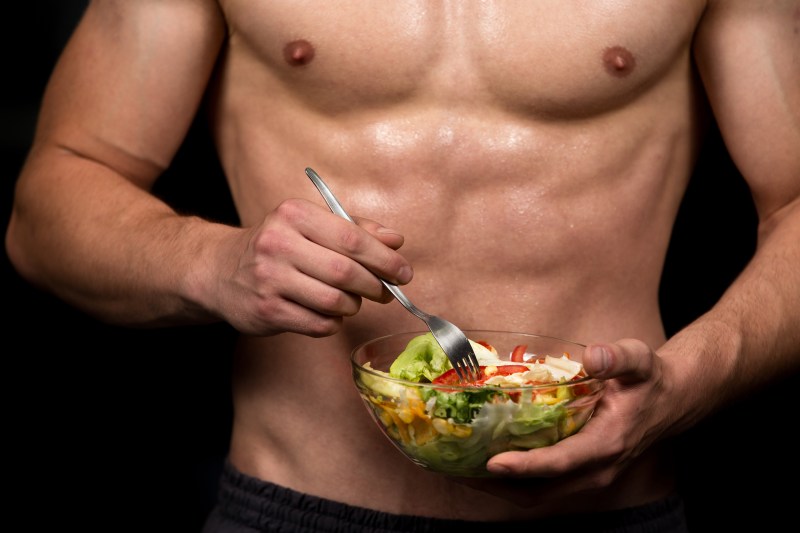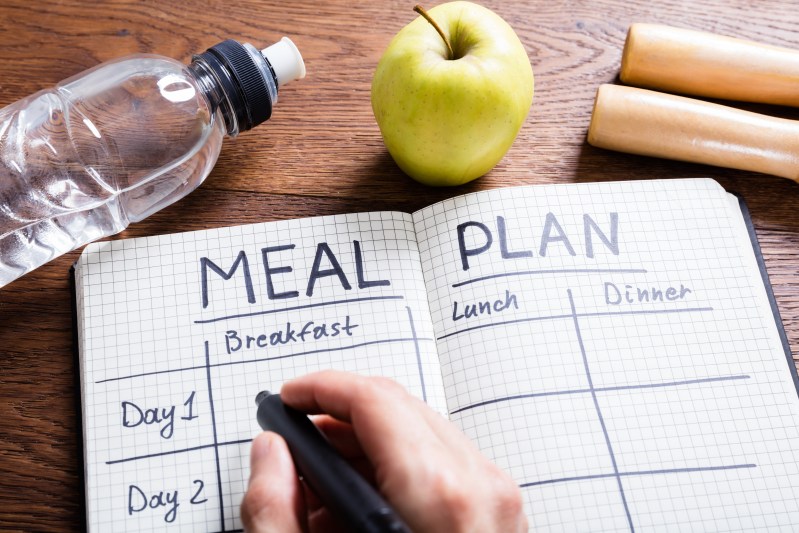
Many people have no problem hitting the gym on a regular basis, but many struggle to build significant muscle. That’s because real gains are made in the kitchen with a balanced, muscle-building diet.
When you eat a diet optimized for muscle growth, you can work out at peak performance and recover faster, so you can hit the gym harder and more frequently. Dr. Amy Lee, Head of Nutrition for Nucific, shares her best tips for building muscle in the kitchen to see faster results.

How your body builds muscle
First, let’s take a look at how your body builds muscle. Your body constantly fluctuates between a catabolic (breakdown) and anabolic (buildup) metabolic process. Muscles grow when your body remains in a net-positive, anabolic environment.
Many factors can influence whether your body is in a catabolic or anabolic state. A few include the quality of sleep you receive, the foods you consume, how often you train, the amount of alcohol or processed foods you consume, and the amount of stress you are under.
Building muscle is like a delicate dance; more is not always better. Too many calories and your body will begin to store the excess as fat. Not enough, and your body won’t be able to build muscle as intended. Balancing macronutrients is critical when it comes to a muscle-building diet.
Macronutrients are the three essential nutrients our bodies need in order to survive. They are fats, proteins, and carbohydrates. Each plays an important role in keeping us healthy, but protein is the most important macronutrient when it comes to building muscle through diet.
Branched-chain amino acids (BCAAs) are the building blocks of muscle and “induce what we call an anabolic state by stimulating muscle protein synthesis and reducing inflammation …” Dr. Lee said.
Reducing inflammation helps with muscle repair and recovery. While consuming BCAAs provides your body with the necessary nutrients for building muscle.
“BCAAs will be your best friend,” Dr. Lee explained. When it comes to building muscle, the body needs 20 amino acids to function properly, 9 of which are essential, meaning that our bodies can’t create them on our own. In that case, they must be consumed through our diet.
One of the best ways to do that is to eat a wide variety of whole foods and opt for the least processed option whenever possible. Eating a balanced muscle-building diet will give your growing muscles the micronutrients and vitamins they need.

Meal planning for muscle growth
When it comes to losing fat and building muscle, being consistent and planning ahead are your two best options. We’ve all been there — 9:56 p.m. on a Wednesday and haven’t eaten since breakfast. You have a meeting first thing in the morning, and you’re debating whether you should eat or go to bed.
You wouldn’t even be in this situation if you had a meal ready in the refrigerator. Yes, meal planning requires some adjustment, but once you’ve got it down, you’ll probably never go without a meal plan ever again. It’s up to you how complicated or simple you want to make your meal planning. Meal planning three weeks’ worth of food at once may be the best option for some. Others may only plan their meals on a calendar, and that’s enough to keep them on track.
You can strategically eat to meet your nutritional needs by planning your meals. So, what should your macronutrient requirements look like? According to research, a balanced diet optimal for muscle growth is to consume 15% to 20% of your calories from fat, 25% to 30% of calories from protein, and 55% to 60% of calories from carbohydrates. You can calculate macronutrient requirements online with this calculator.

Meals and recipe ideas for a muscle-building diet
You should include a variety of whole foods in your muscle-building diet and avoid processed foods containing chemicals and additives. These foods contain sodium, trans fats, and refined sugars that can slow your recovery. But rather than focus on the foods you can’t eat, focus on the foods you can.
As protein is your new best friend, it’s important to note that quality matters. The good news is that protein comes in many delicious forms. Even for vegetarians, there are plenty of ways to consume the needed amount of protein from a variety of sources, like tofu and nuts.
According to Dr. Lee, “BCAAs are found in lean proteins like tuna, chicken, and lean cuts of beef. They can also be found in grains and beans like chickpeas, lentils, whole wheat, and brown rice.”
When it comes to getting quality macronutrients from your diet, whole foods are always the best option. But if you’re in a pinch, many supplements and protein powders also contain BCAAs. These supplements can be good options when you’re short on time or need to increase your caloric intake significantly.
What’s the point of creating a system if it doesn’t work for you? The best meal plan is one that you will stick to consistently and that allows you to go about your week stress-free, knowing you’re fueling your body with what it needs to accomplish your fitness goals.



